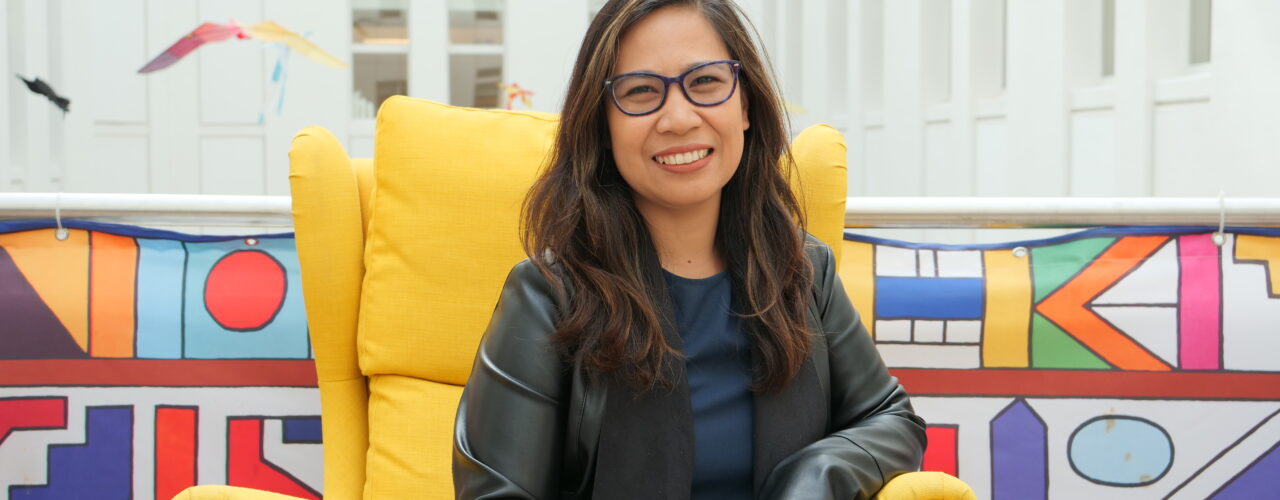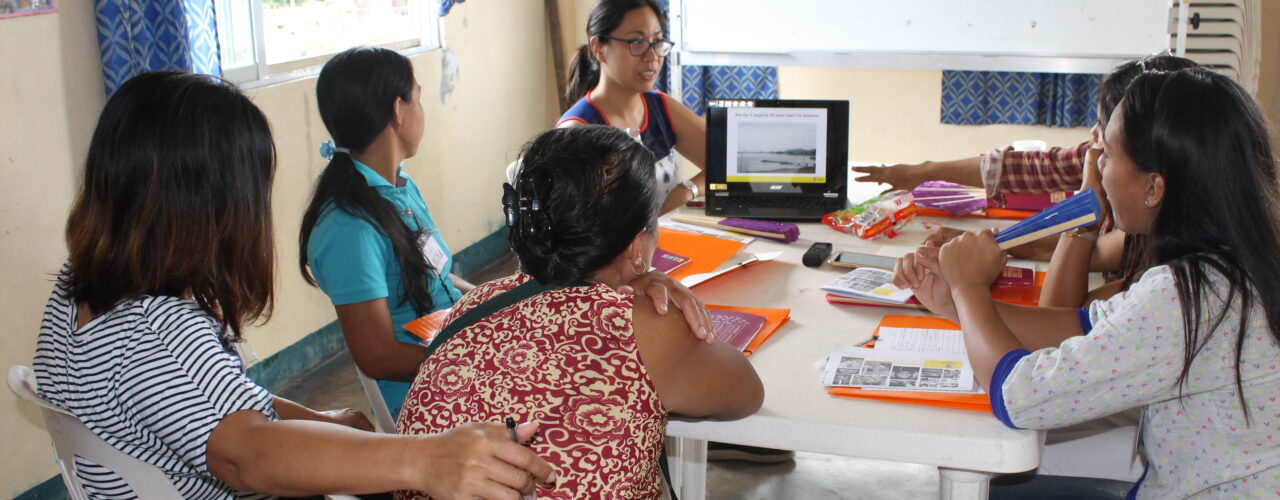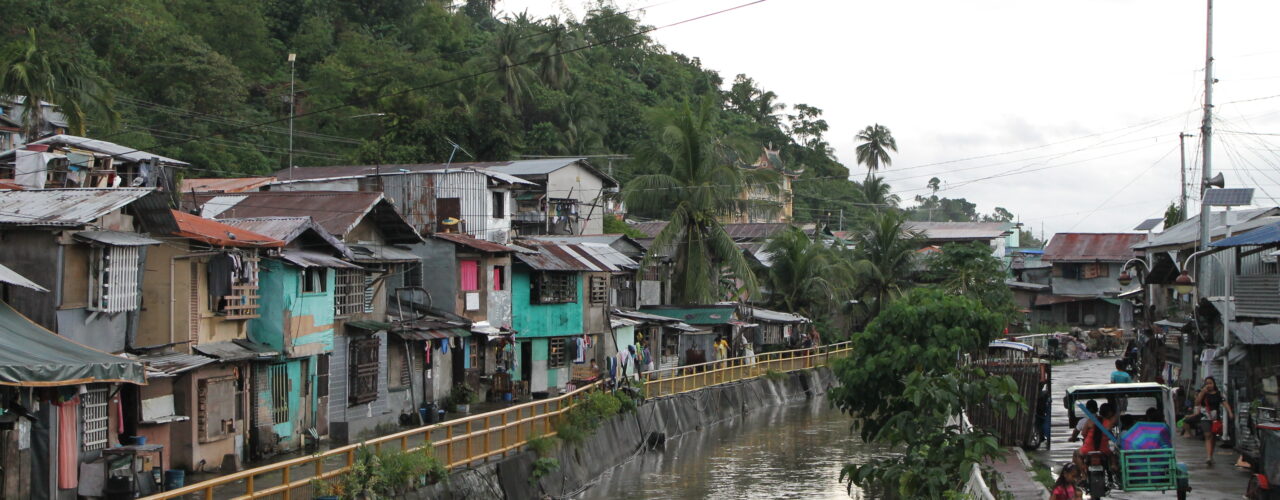
Having worked for more than 15 years as an academic, a development practitioner, and as a women’s rights advocate (in the Philippines, in Australia, and now in the Netherlands), she developed a keen interest in understanding the everyday politics and ethics of living with, responding to, and recovering from disasters.
You are currently finishing the book: “Disaster Recovery through Women’s Eyes: Reimagining Resilience”, if possible, can you shortly explain what the book is about?
Disaster Recovery through Women’s Eyes, is an ethnographic account of disaster reconstruction following typhoon Yolanda/Haiyan in the Philippines told from the perspective of women affected by the disaster. A unique feature of the book is the use of an innovative photo-based method called PhotoKwento, roughly translated as ‘storytelling with photographs’, as a way to co-construct women’s narratives of disaster recovery. It asks: What does recovery mean for women affected by disaster? How can their experiences be a starting point for rethinking how we can do recovery differently and more meaningfully? In this sense, I develop an alternative conceptualization of resilience through an engagement with women’s narratives of their everyday navigation of disaster recovery and their practices of care.
A unique feature of the book is the use of an innovative photo-based method called PhotoKwento, roughly translated as ‘storytelling with photographs’, as a way to co-construct women’s narratives of disaster recovery.

Why should people read your book / publication?
This book is a valuable addition to the ongoing discussions about resilience in disaster response. It stands out from existing scholarship in three key ways: First, it offers a deep exploration of disaster recovery through women’s personal narratives, using an innovative approach. Second, it not only shares these women’s perspectives but also engages with them to reshape our understanding of disaster recovery and resilience. Third, it focuses on the everyday, emotional aspects of disasters and the care ethics within local recovery practices. While conventional discussions of disaster risk reduction rarely consider these emotional dimensions and care relationships, this book addresses them centrally. Disaster Recovery through Women’s Eyes provides additional evidence and fresh perspectives on disaster, gender, and resilience, which can benefit development and humanitarian practitioners in rethinking community governance during and after disasters while incorporating a care-oriented approach.
Why do you think it is important to address these issues?
In many disaster situations, women play a critical role in family and community recovery. However, the existing knowledge about recovery often neglects to consider the perspectives of women who experience these events firsthand. Frequently, assumptions about gender, especially women’s roles, in such contexts do not align with the realities faced by those living with the risks and aftermath of disasters. For example, stereotypes about women’s vulnerability can lead to well-intentioned but paternalistic responses that restrict their choices and agency. Conversely, overly idealizing women’s involvement in recovery efforts without addressing gender-based inequalities, which often result in greater caregiving responsibilities for women during disasters, can have unintended negative consequences, as I discuss in another work.
The existing knowledge about recovery often neglects to consider the perspectives of women who experience these events firsthand.
Why is a feminist approach relevant for humanitarian studies?
Feminism is often misunderstood as only relevant to women, or that feminist approaches and strategies are only about developing policies and initiatives that benefit women. But as other disciplines beyond humanitarian studies have recognized, feminism(s) have contributed significantly to the development of (alternative) ways of thinking, practice, and methodologies which are relevant but not necessarily limited to “women’s issues”. Notably, feminism has been effective in identifying and challenging exclusionary practices affecting not only women but also other marginalized social groups. It addresses power dynamics, politics, and links personal experiences with broader social, political, and economic structures.
As humanitarian action is premised on being driven by ‘need’, we also need to ask in what ways are our perspectives of need (and the ways we address this need) influenced by gendered biases? How do context-specific gender norms produce exclusions in the delivery of aid? Can conventional humanitarian practices perpetuate gender inequalities? How might we work better and more care-fully in crisis-affected societies, which explicitly curtail the rights of women and girls and sexual gender/minorties? With contemporary issues that have gained prominence recently – including but not limited to sexual exploitation and abuse involving humanitarian aid workers – it is also important to look inward and ask: how do institutional cultures within humanitarian organizations uphold and reproduce patriarchal structures and how can they be changed? Feminist perspectives in humanitarian studies offer valuable insights and engagement with these critical concerns.
Is this a new way of looking at humanitarian practice? Has this feminist approach been neglected before?
In a way, yes, it is new. But in many ways, no. While the humanitarian system has in a variety of ways strived to address gender issues in interventions, the discourses on feminist approaches in international humanitarian action along with growing conversations around ‘feminist’ foreign policy is relatively recent. Some humanitarian practitioners may view feminist approaches as ‘overly political’. But as humanitarian actors continue to learn and grow more diverse, such discourses and advocacies are finding their space. For instance, feminist organizations involved in humanitarian action are advancing more context-specific, inclusive, and gender-transformative approaches to humanitarianism. They are actively collaborating with grassroots organizations, offering valuable lessons we can learn from.
However, this does not mean that feminist approaches to addressing and responding to crises are a recent invention. Beyond the international humanitarian system, women’s organizations, grassroots associations, and various civil society groups (both local and transnational) have long been at the forefront of advocating for gender equality, inclusion, and rights for many decades. I have witnessed this in the Philippines. Even without the explicit labels of ‘humanitarian’ or ‘feminist,’ many organizations, often led by women, have been championing these issues in various contexts, including disaster and conflict situations. But these are often rendered invisible, undervalued or underexamined. It is for this reason that I am undertaking a mapping of feminist humanitarian action: to understand how feminism(s) can be applied in various contexts and explore how feminist approaches might be able to help address some of the challenges in contemporary humanitarian practices.

To close of with: how does your new role within HSC looks like?
My role at the HSC focuses on humanitarian governance. Broadly, I am interested in how governance takes shape amidst changing institutional landscapes brought about by greater involvement of national actors, increasing attention on the impacts of climate change, and emergence of new/alternative forms of humanitarianisms and their ethics, among others.
Through this role, I would love to explore collaborations with the humanitarian observatories – an initiative started by the ERC-funded Humanitarian Governance project that aims to create spaces where different actors in countries affected by crisis can discuss and reflect on issues and challenges around humanitarian governance in their context and, where needed, advocate for reform. While it is still a nascent undertaking, I have always been excited by the possibilities of a critical ‘localized’ humanitarian studies that the observatories can offer. Indeed, I was very inspired by my involvement in the establishment and launching of the Philippine humanitarian observatory, one of our most recent additions to this network.
Moreover, among the projects that I am currently pursuing is mapping out feminist approaches to humanitarian action in recognition of the fact that feminist organizations and women’s movements play an important role in the ways societies address crisis and in changing practices that sustain gendered inequalities. The emergence of feminist advocacies/initiatives within the humanitarian field offers opportunities to engage with and reflect on current practices. However, the ideas emanating from this are rarely brought into direct conversation with other (mainstream and non-mainstream) strands of humanitarian research and practice. I hope to contribute to creating spaces and building networks that help foreground these conversations.
Date: 11th of September 2023
Author: Marianne Sijtsma
